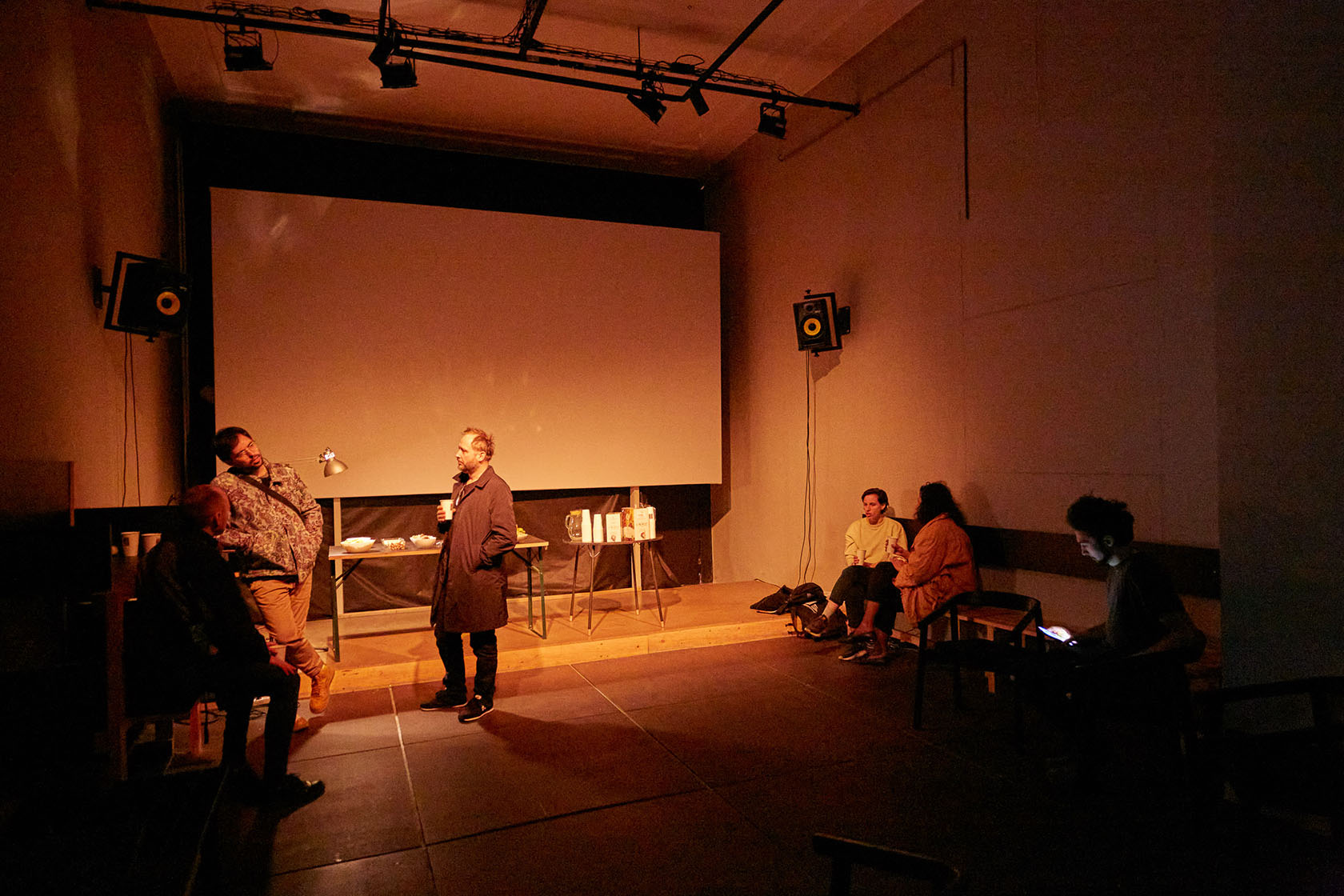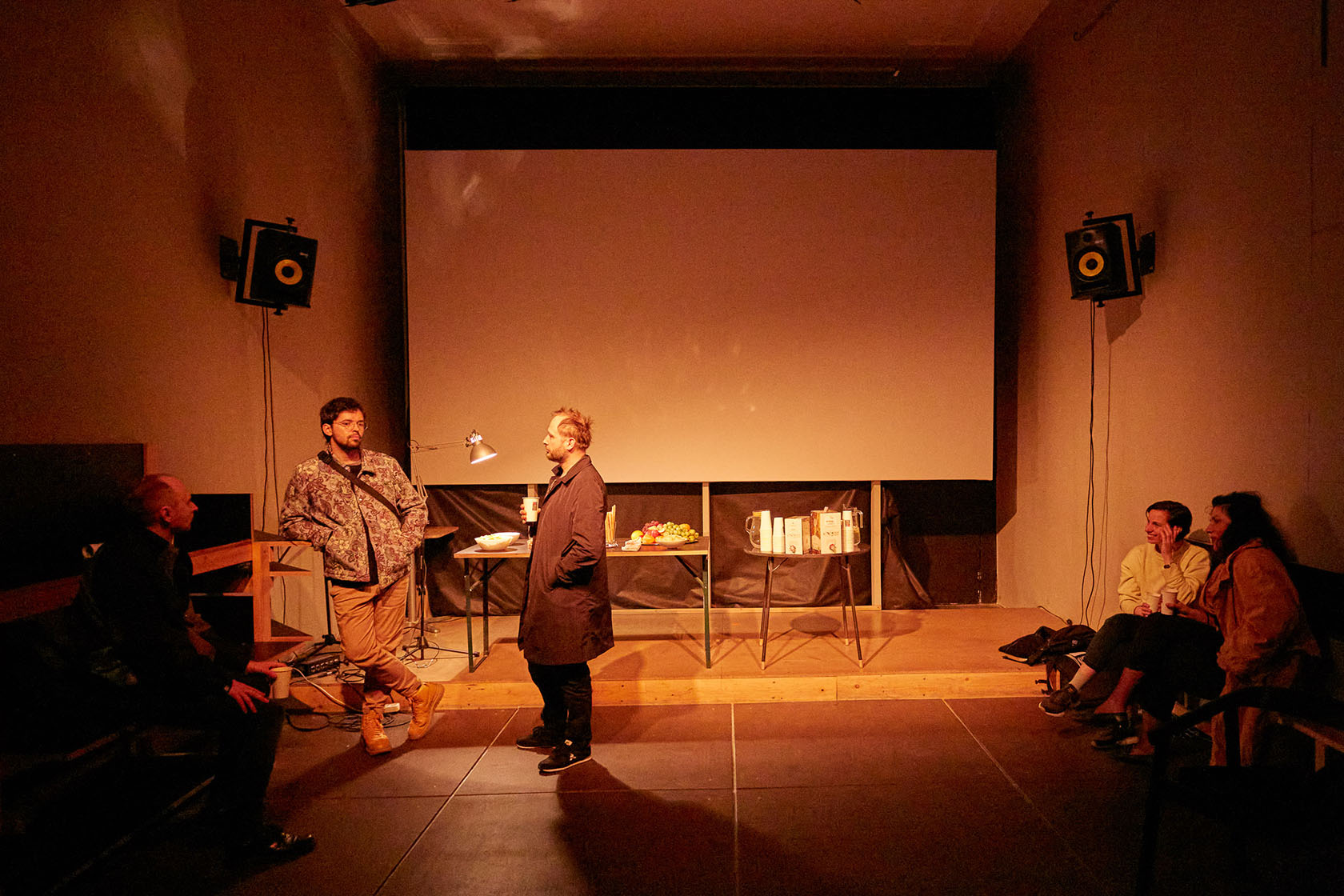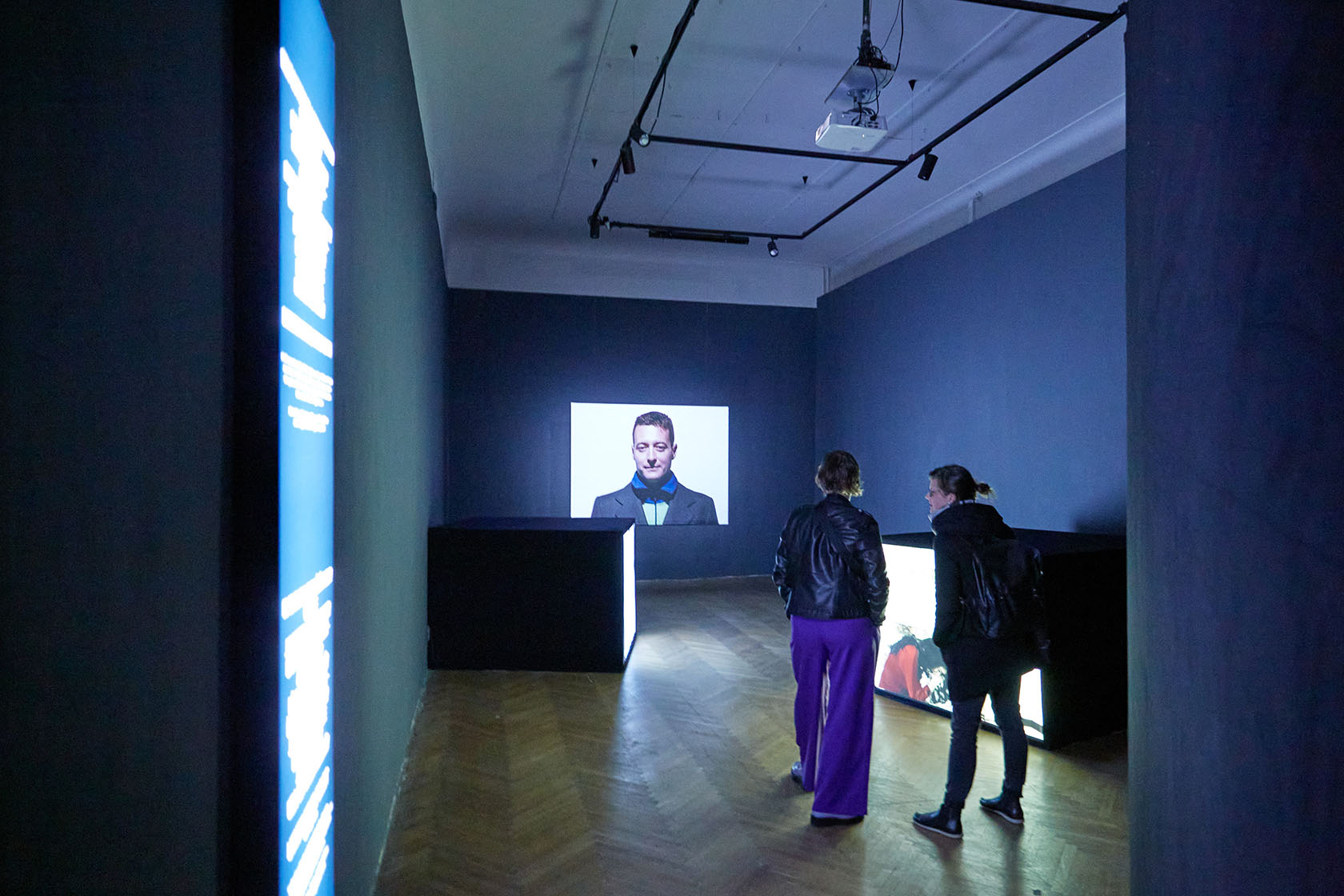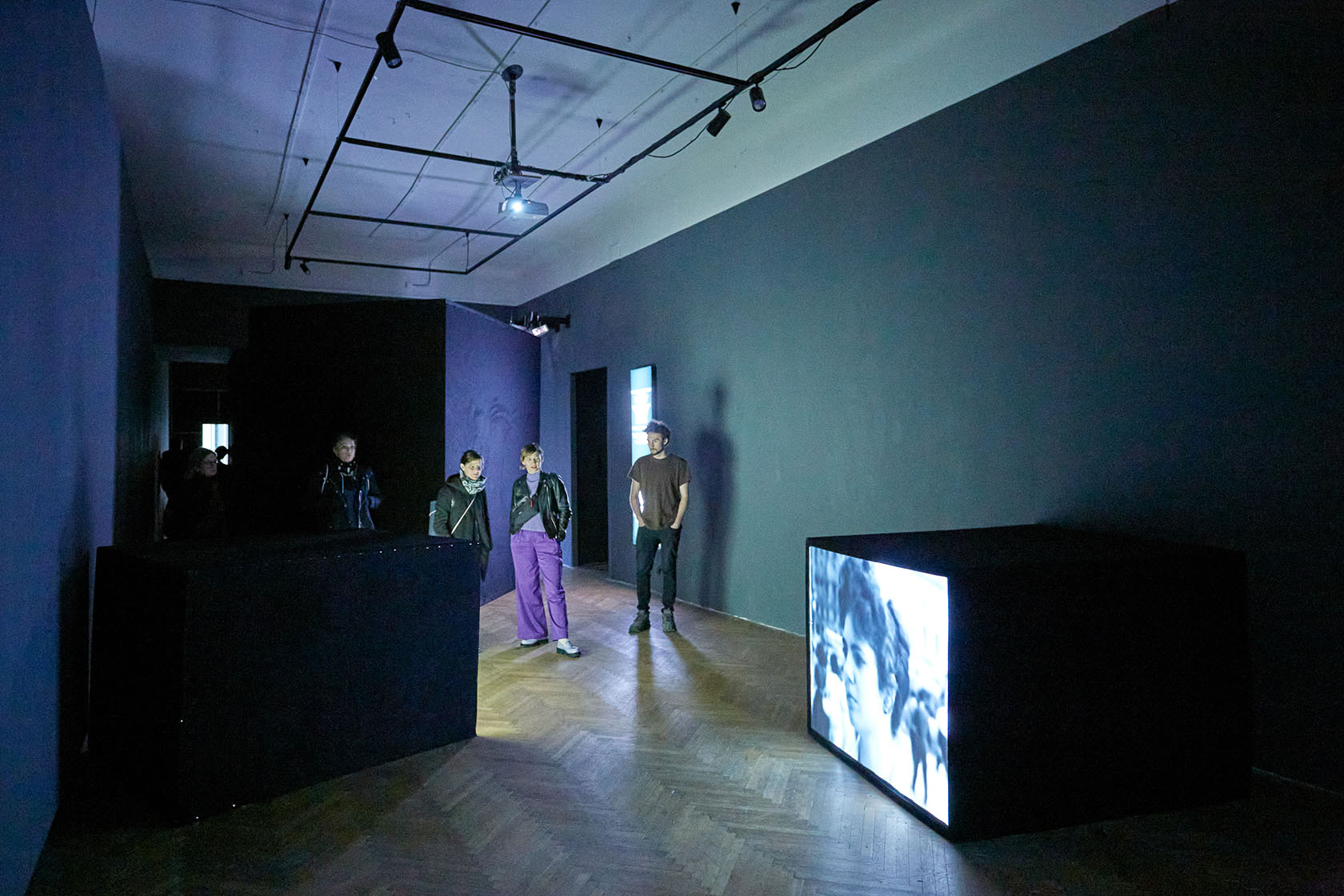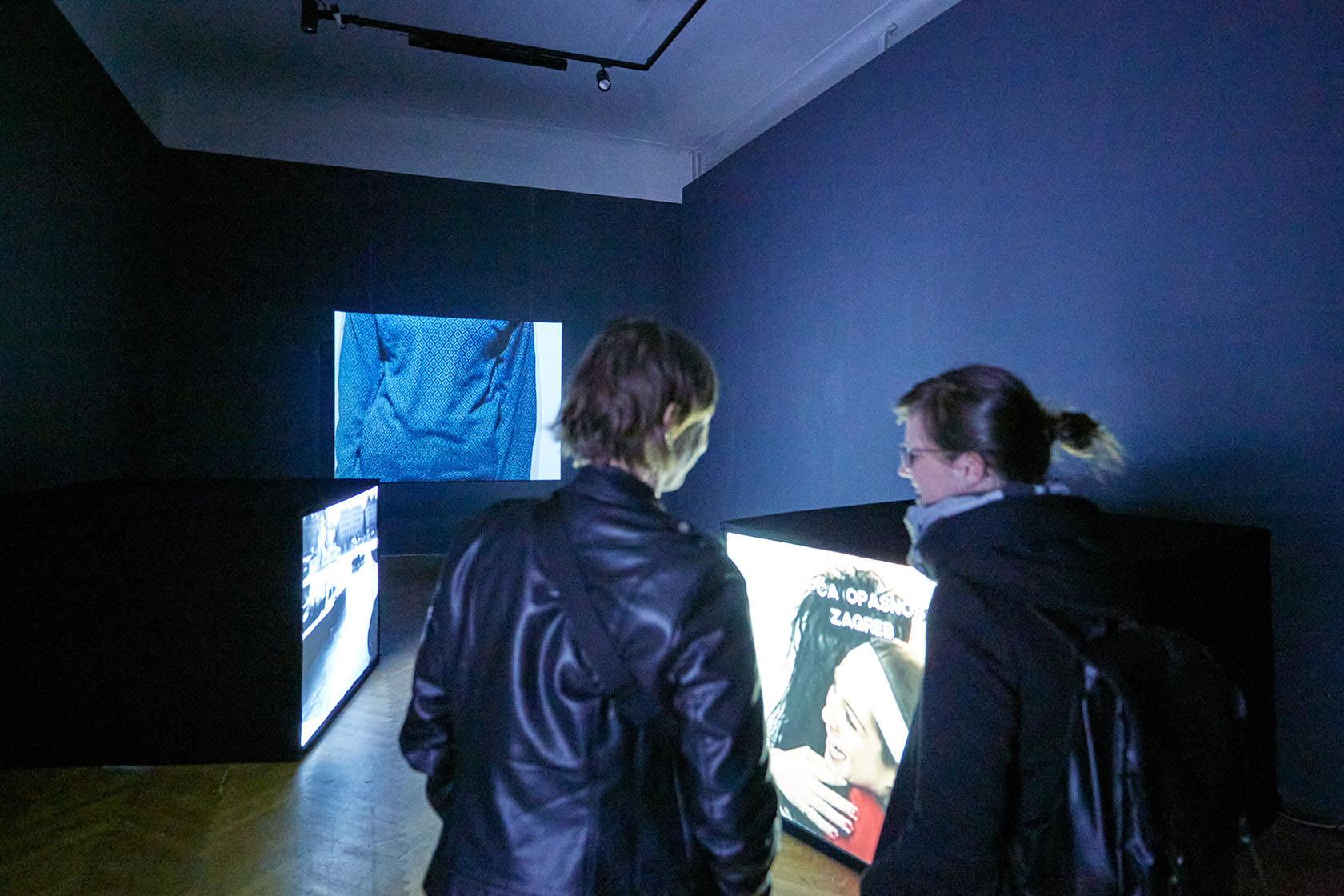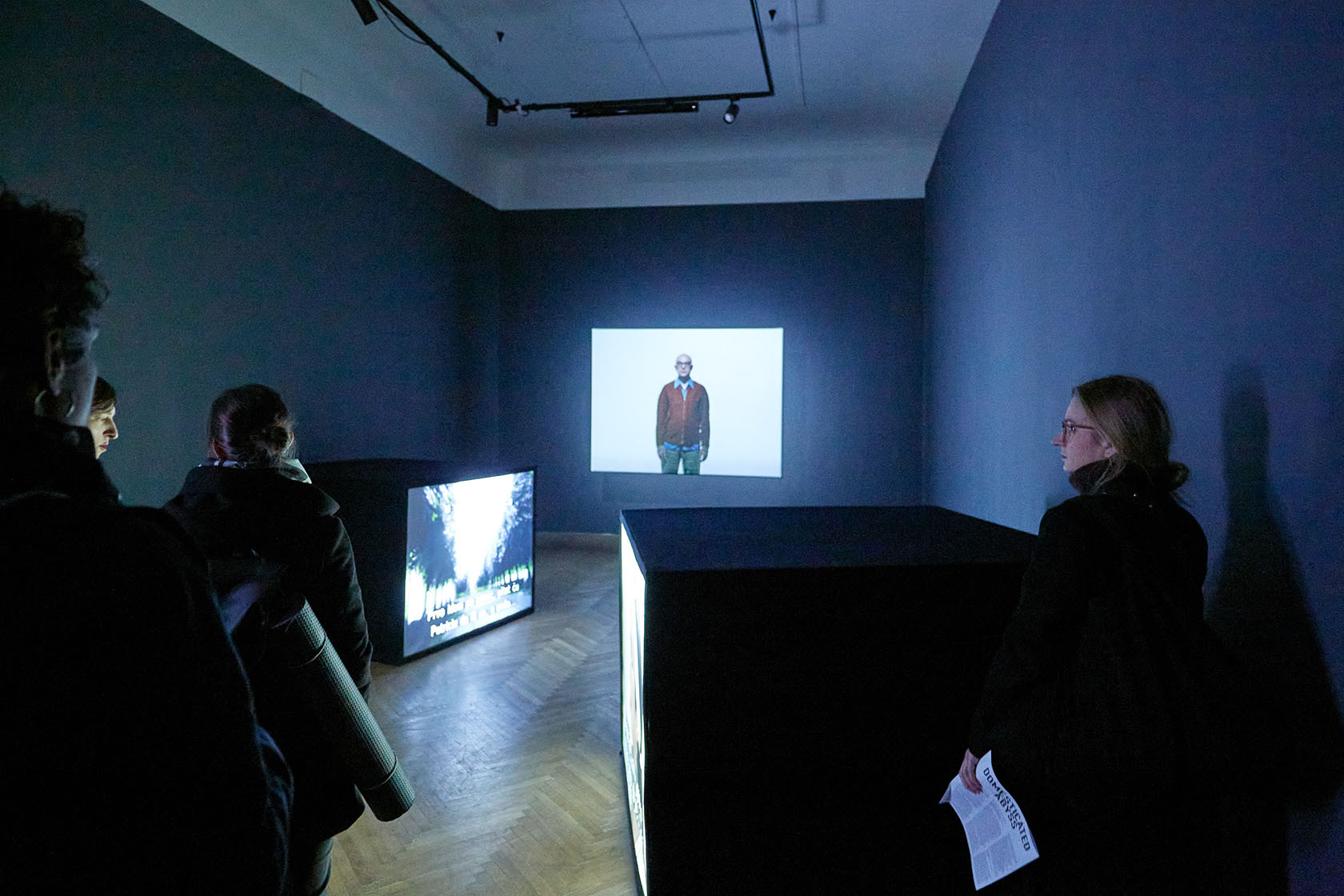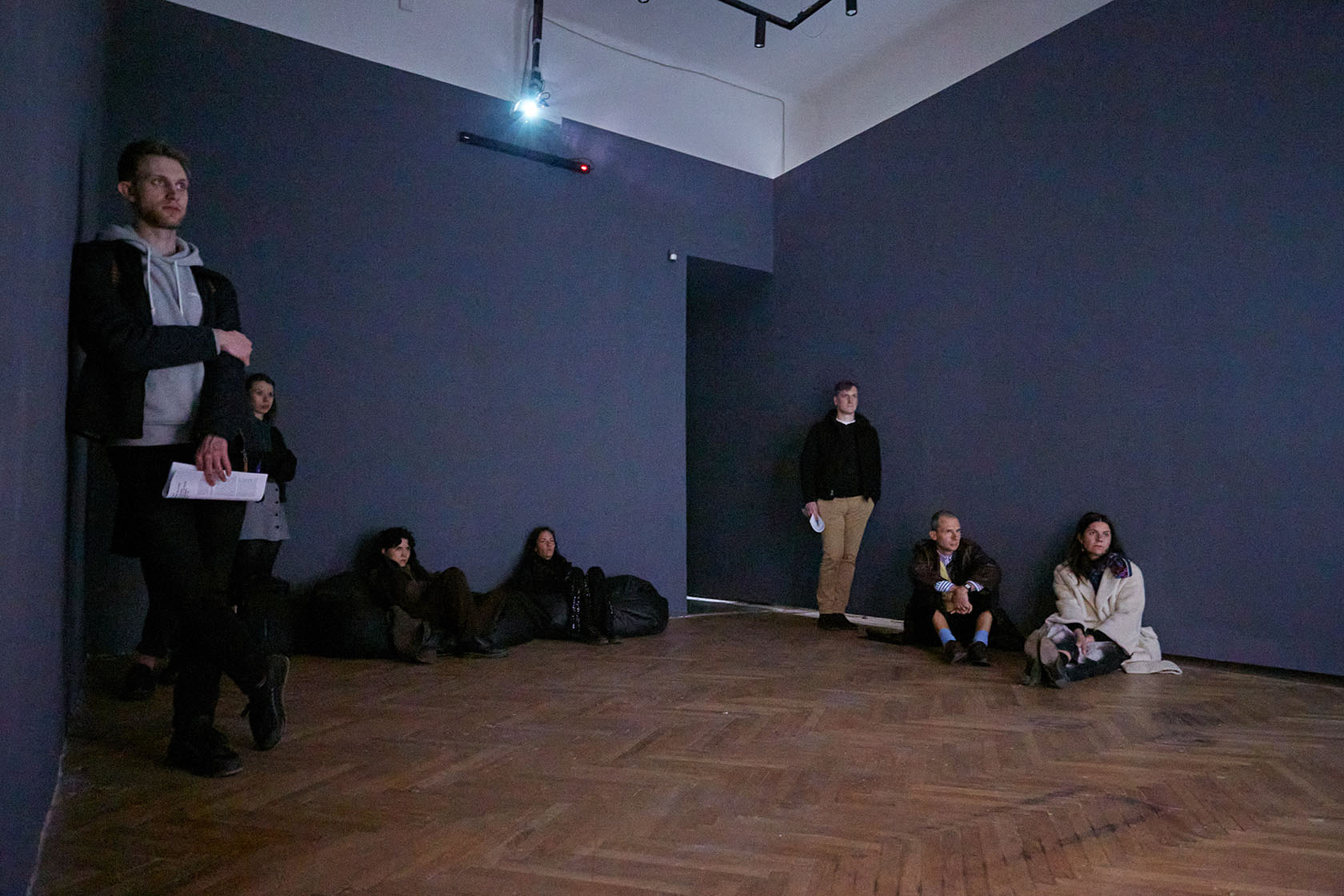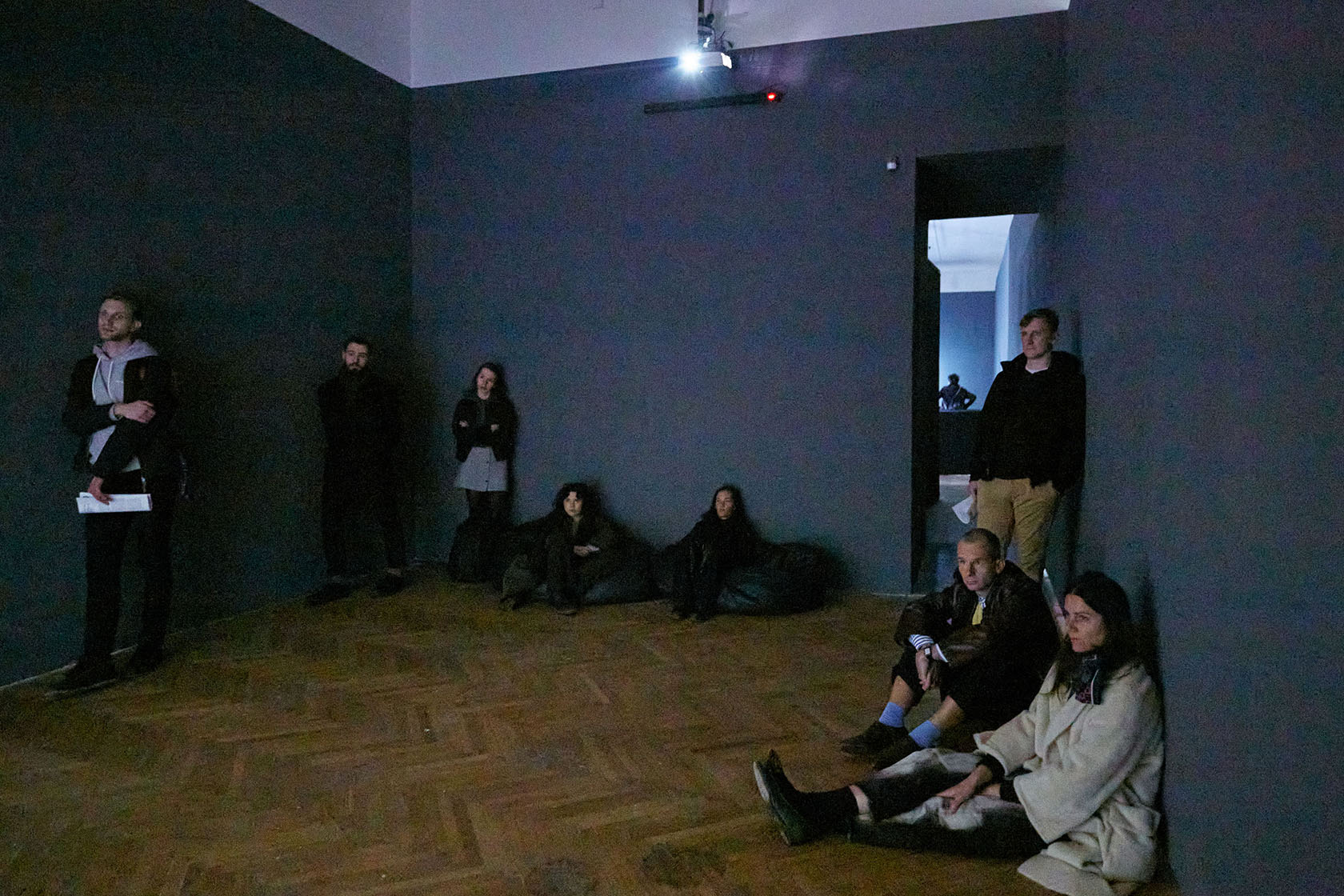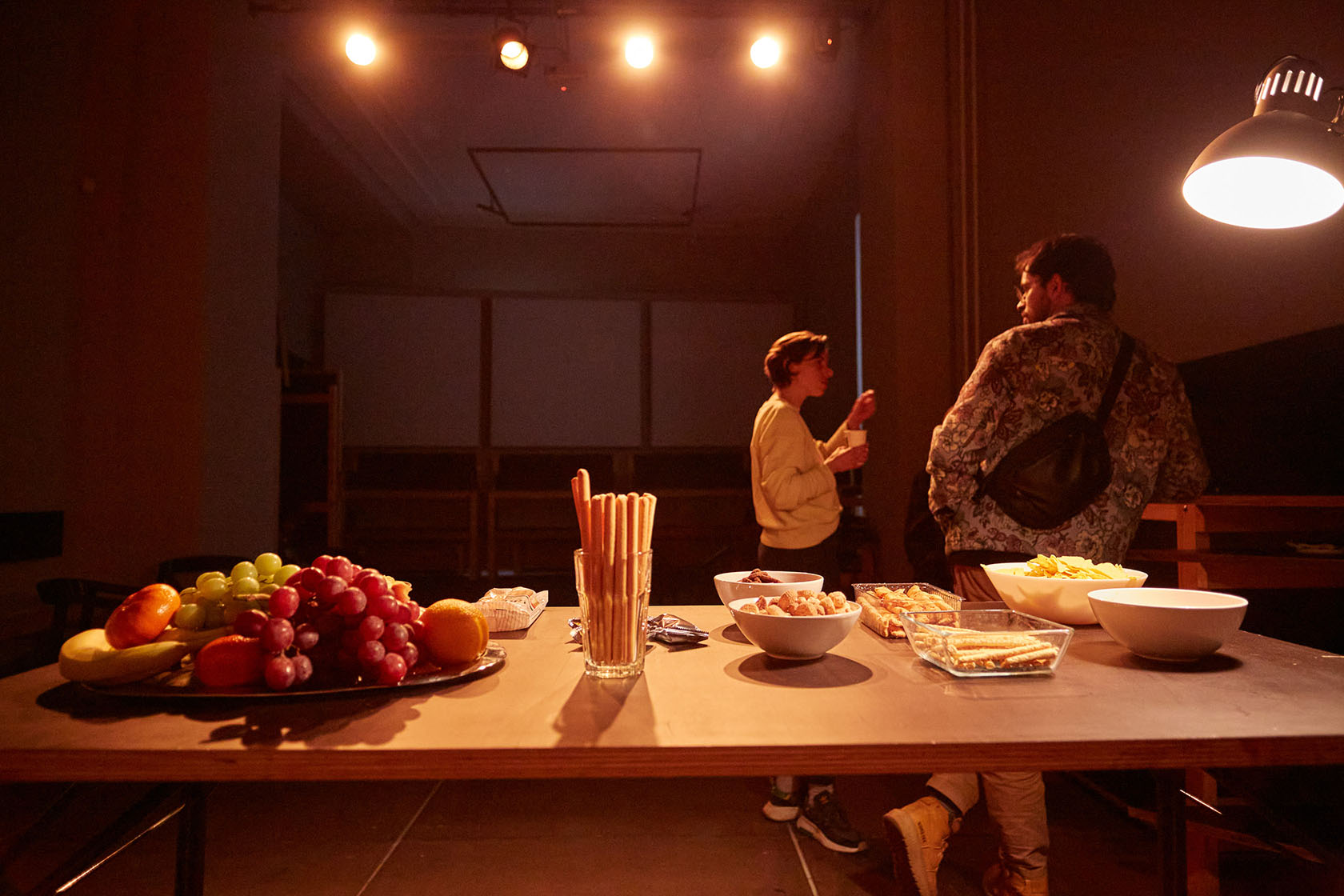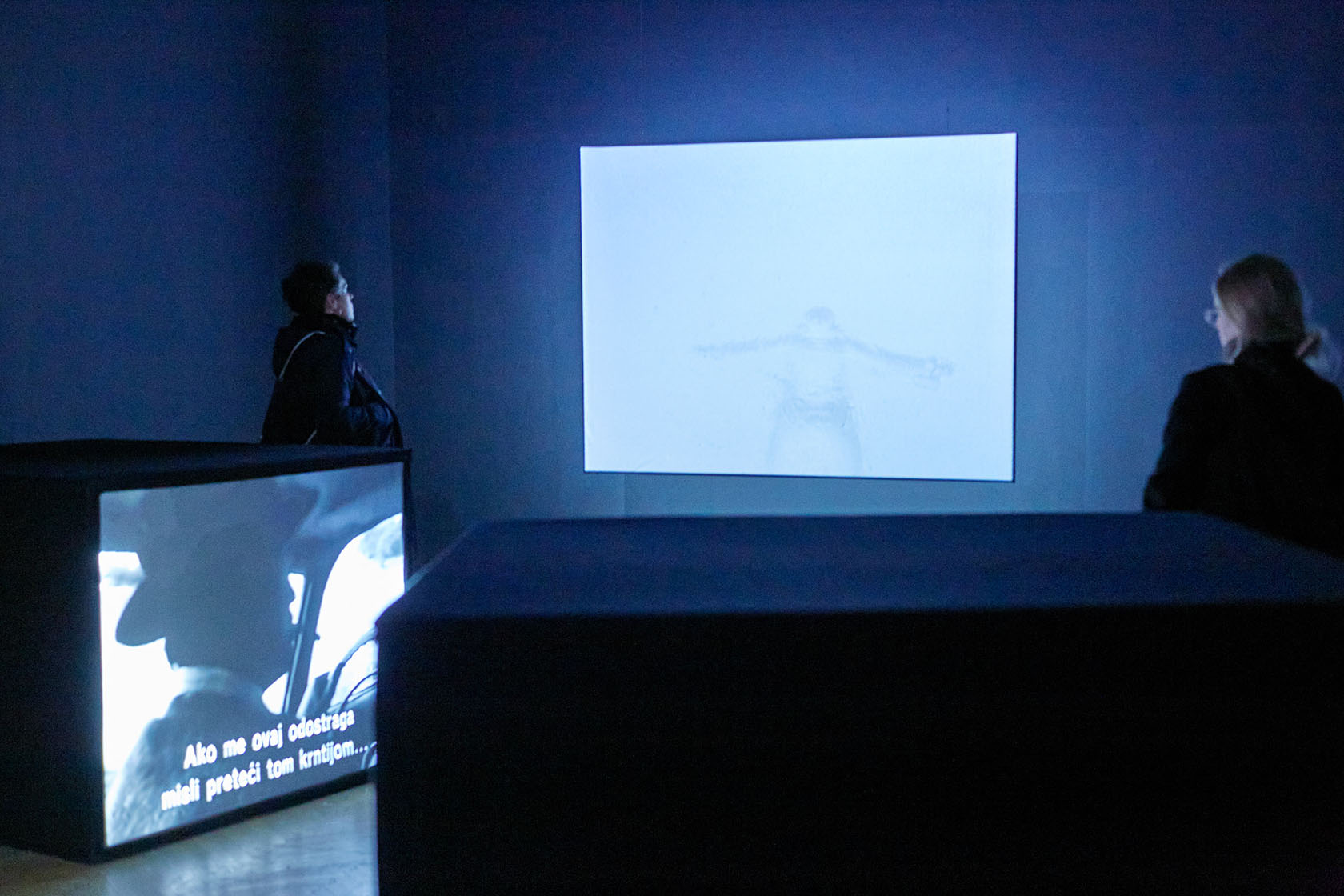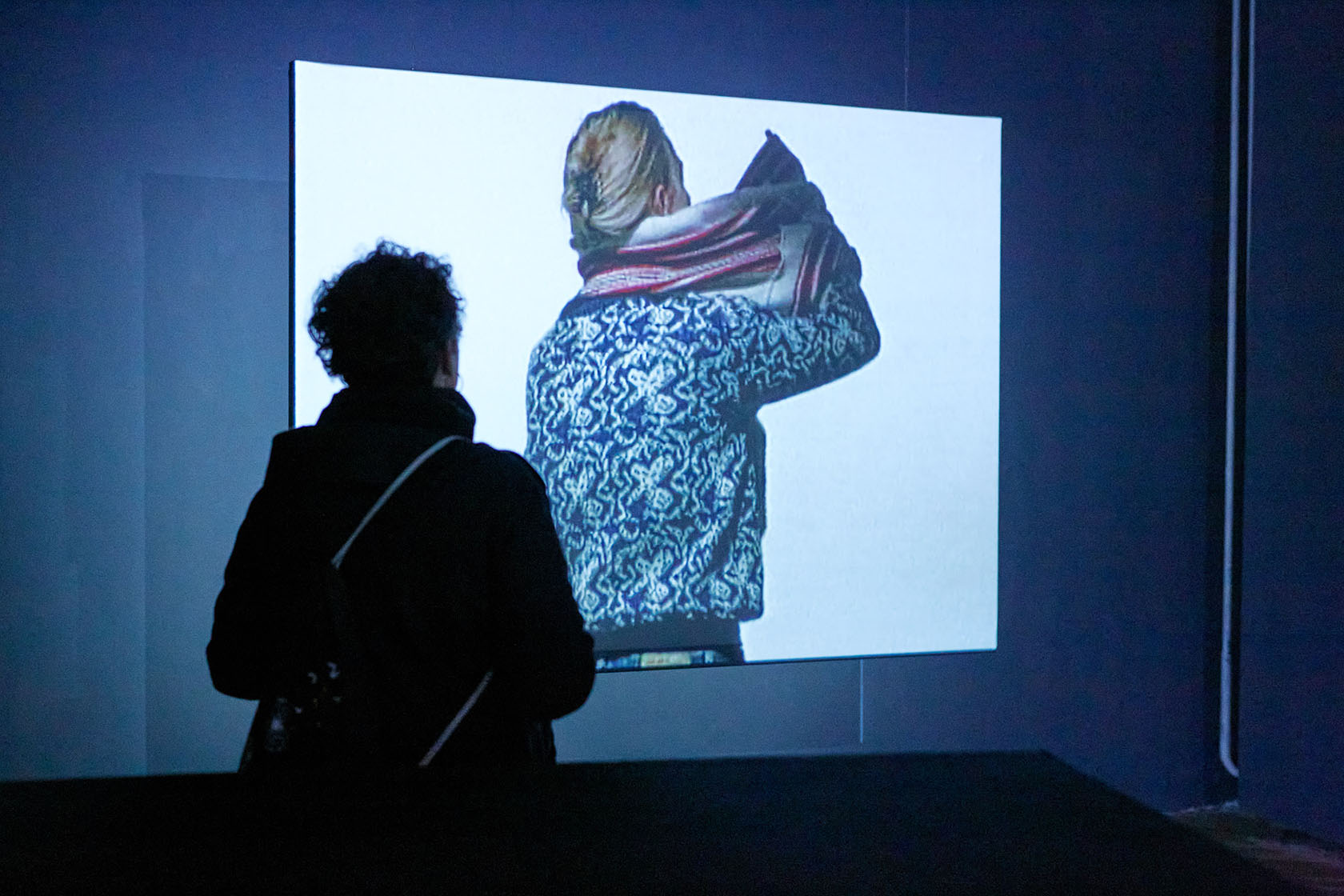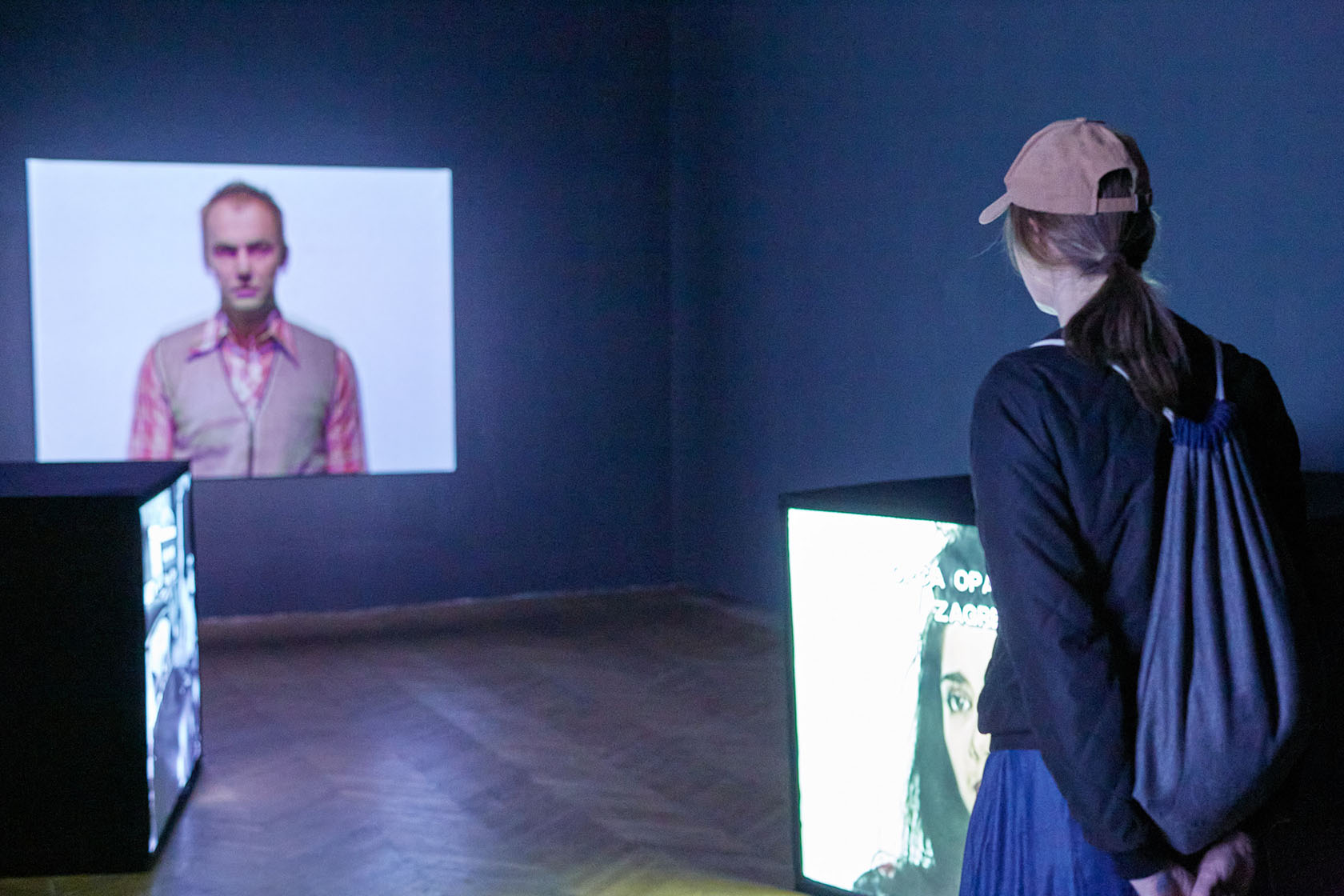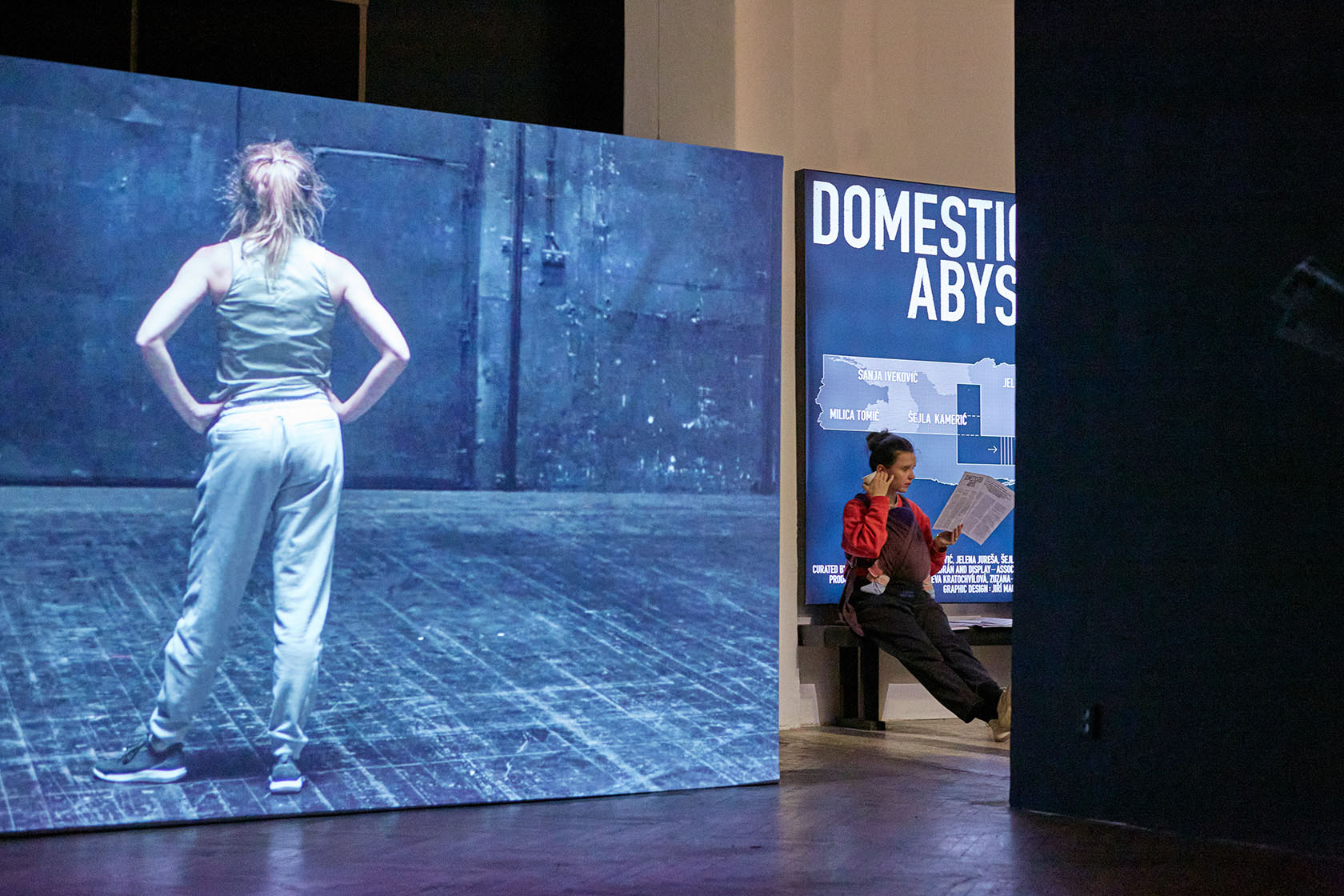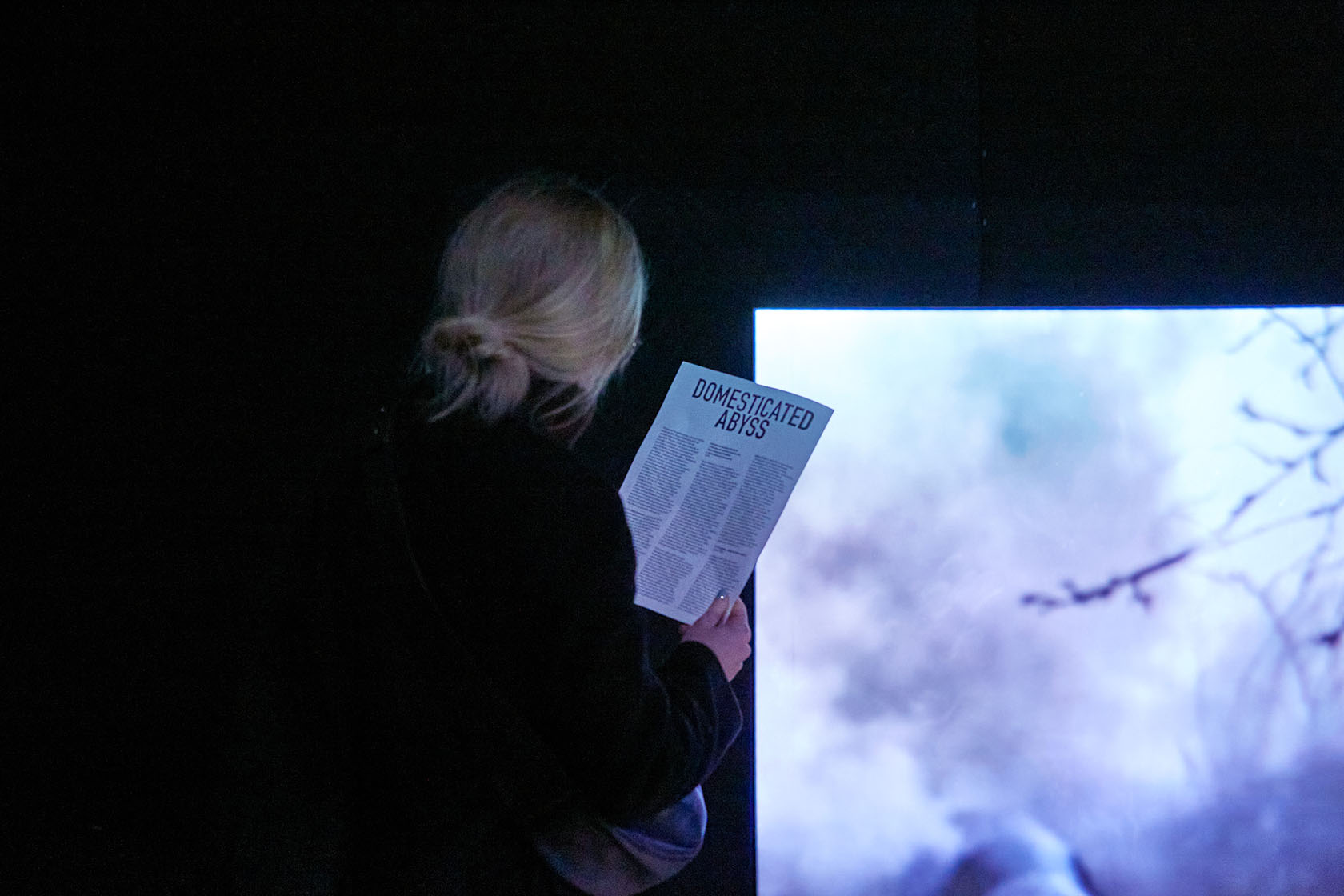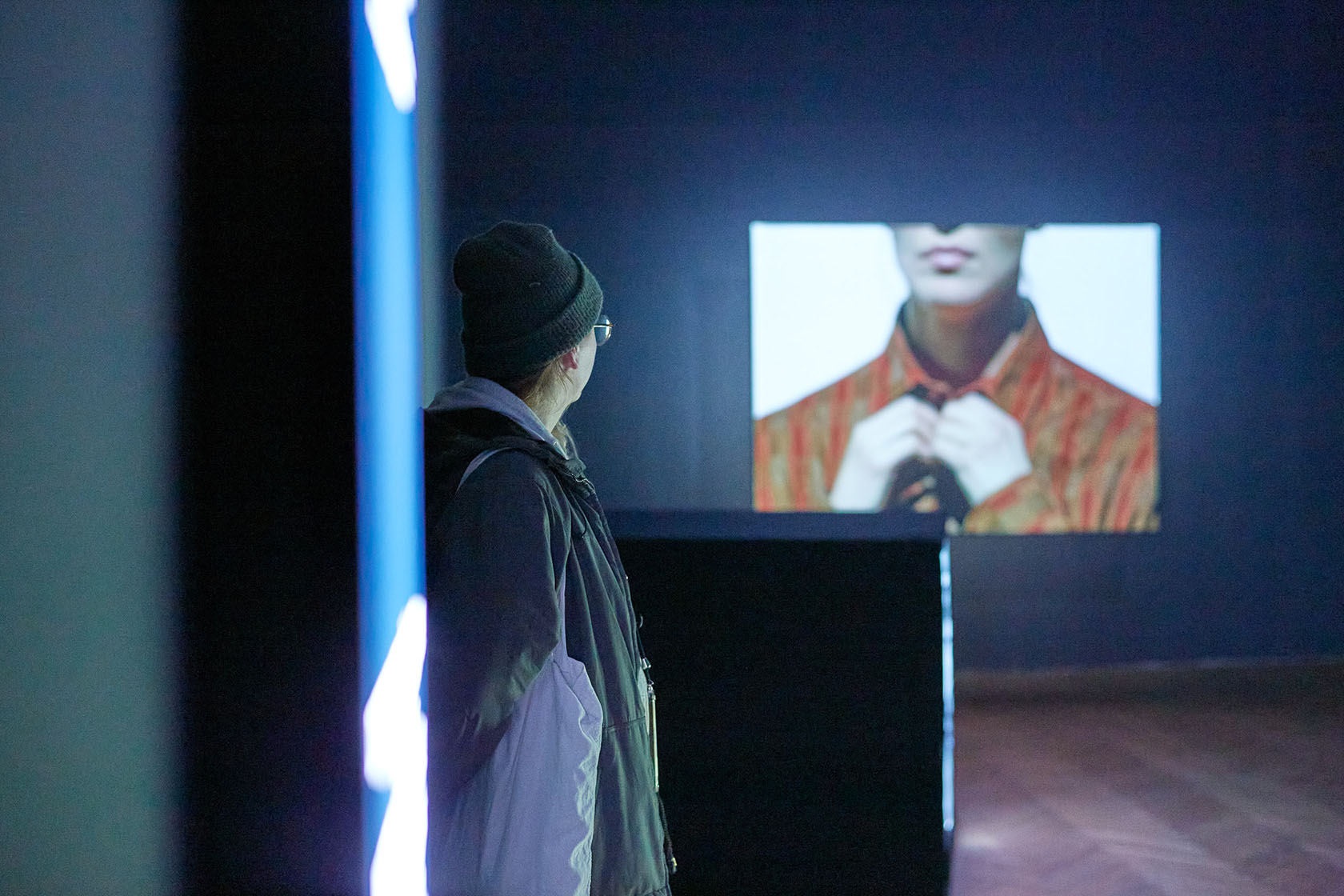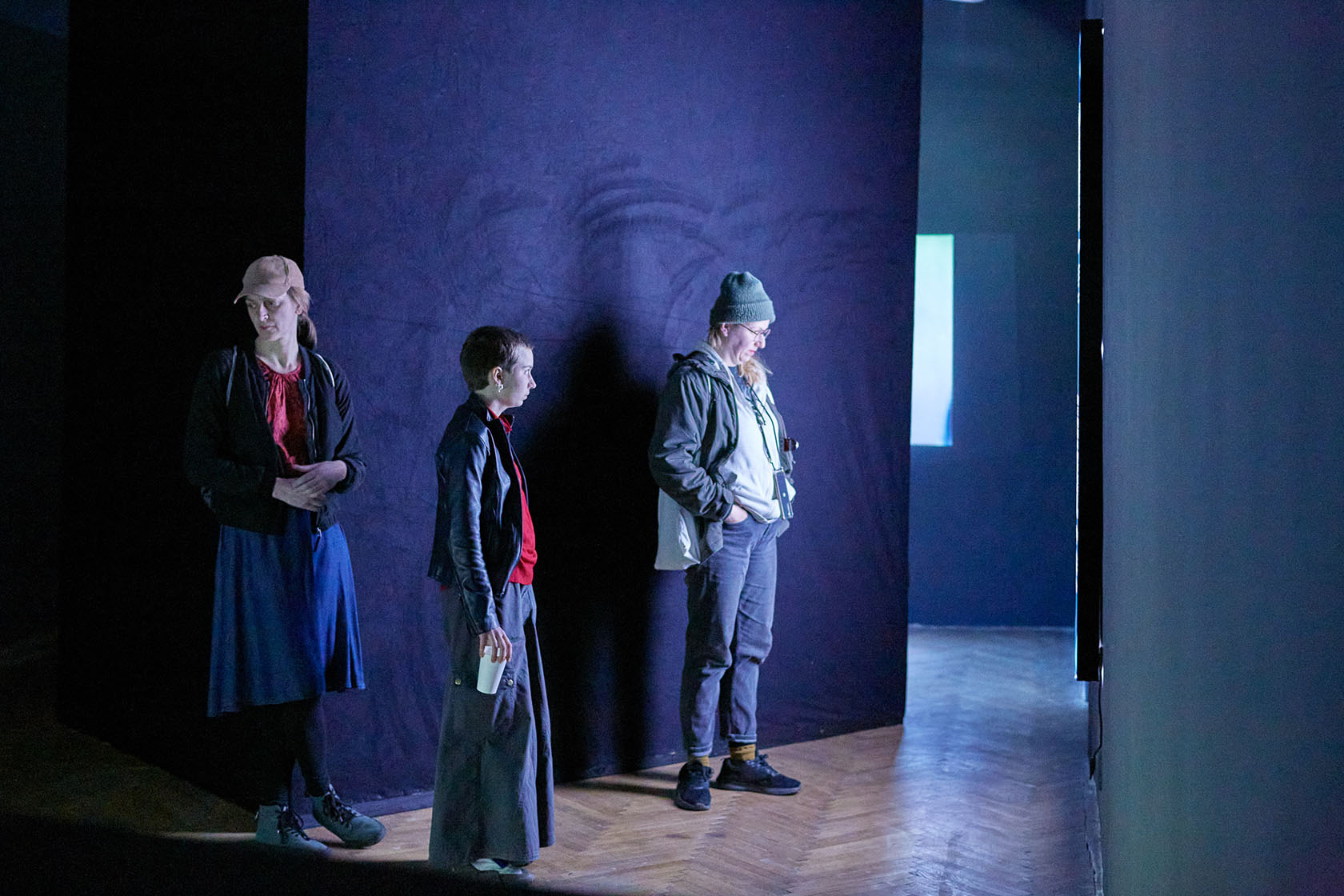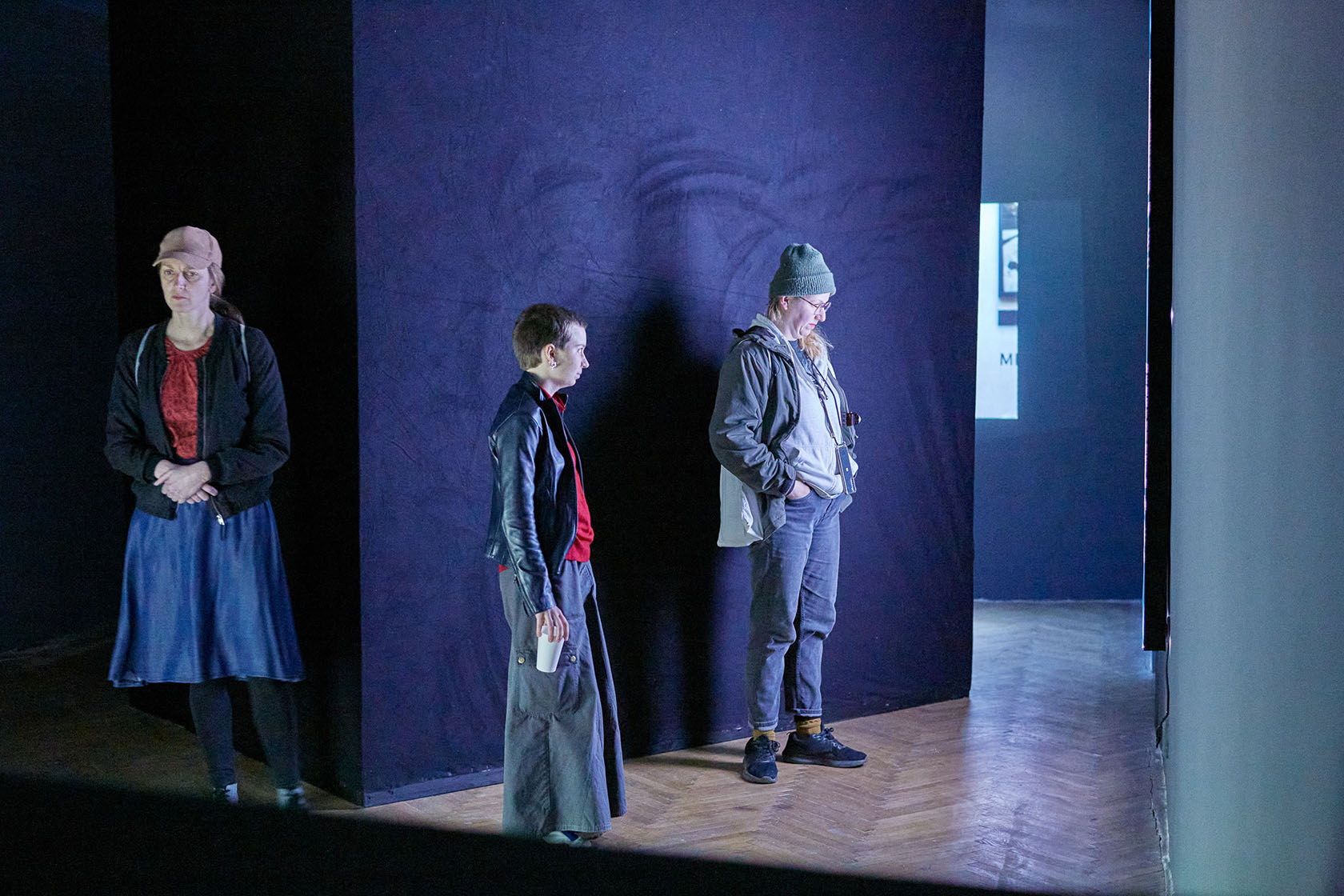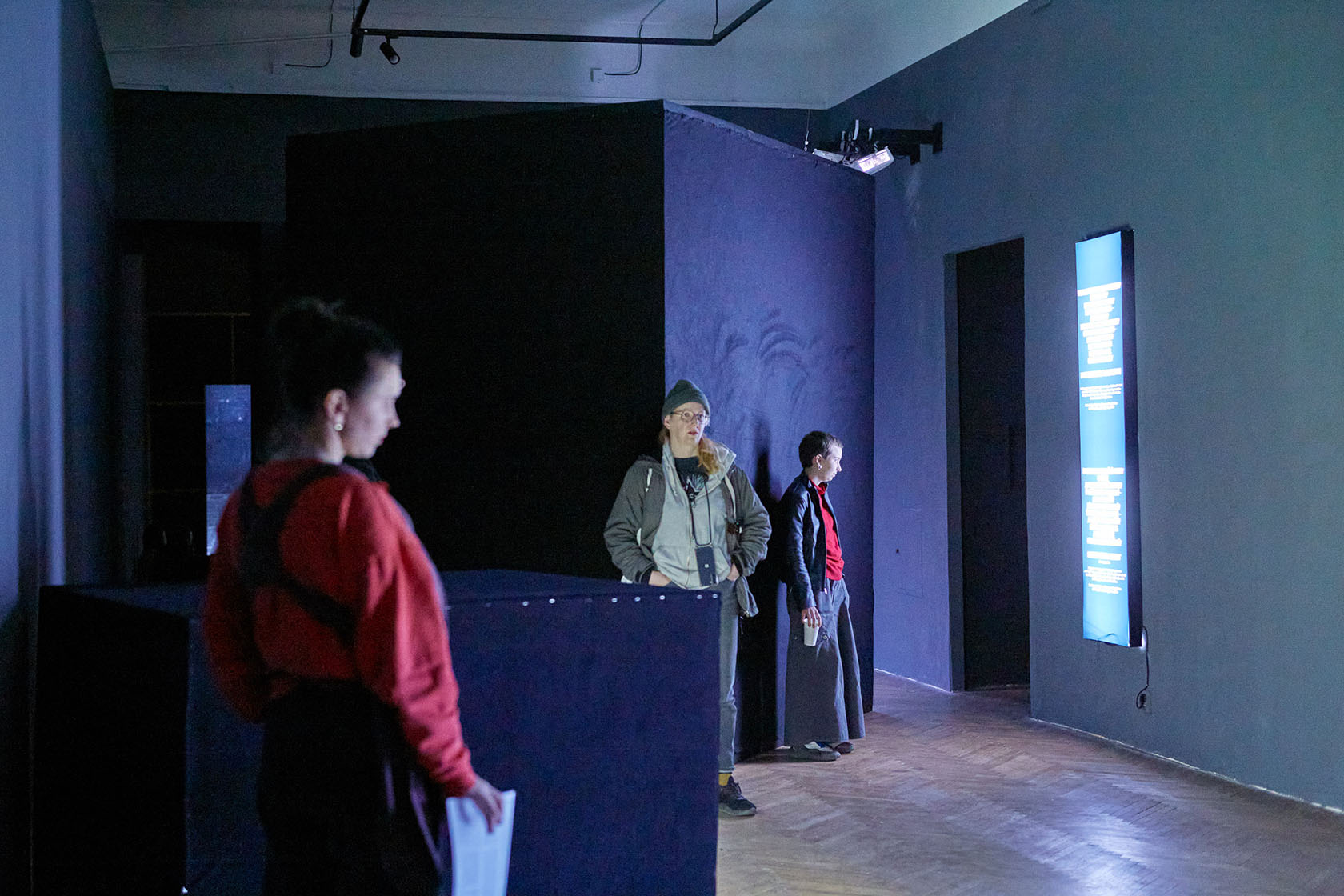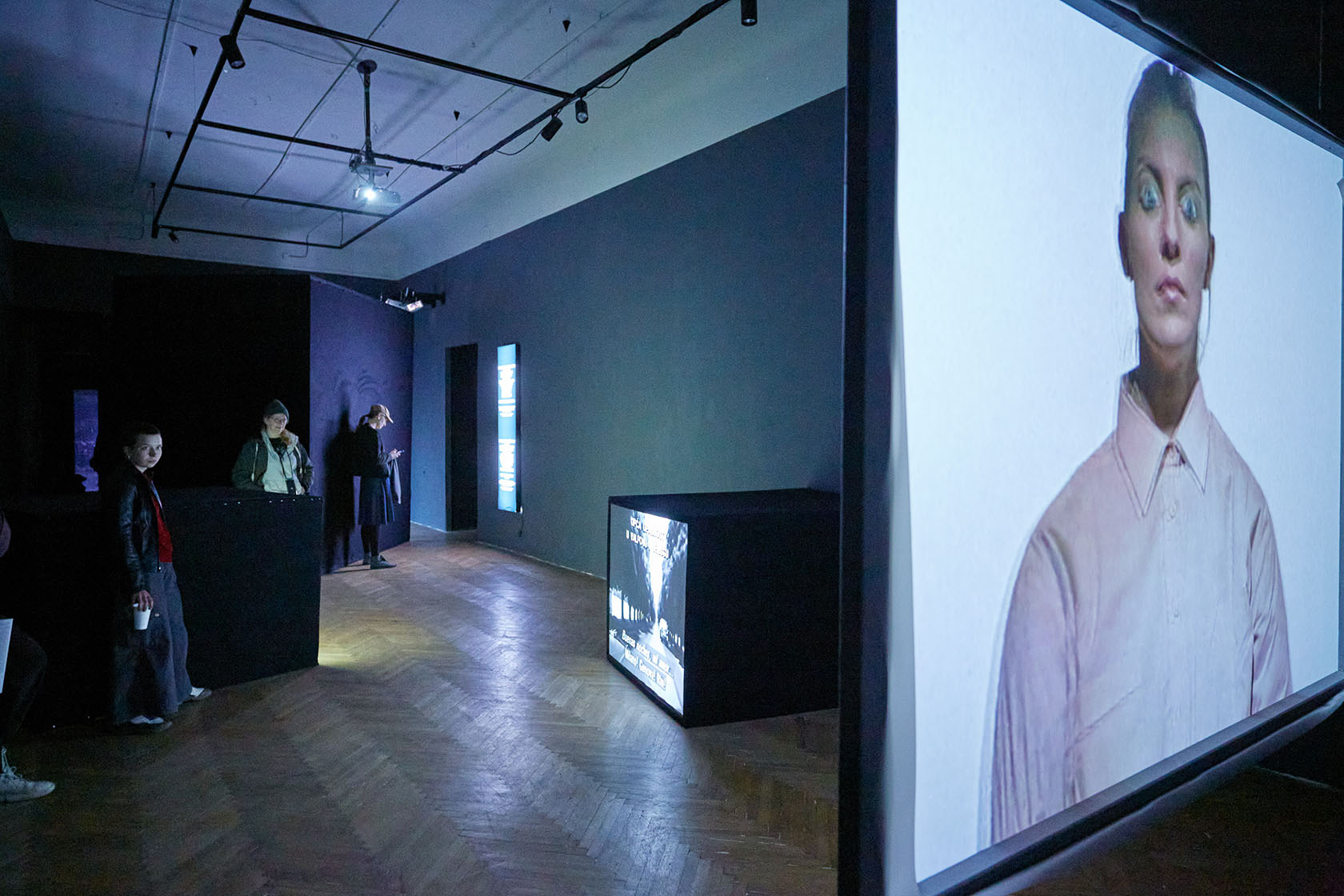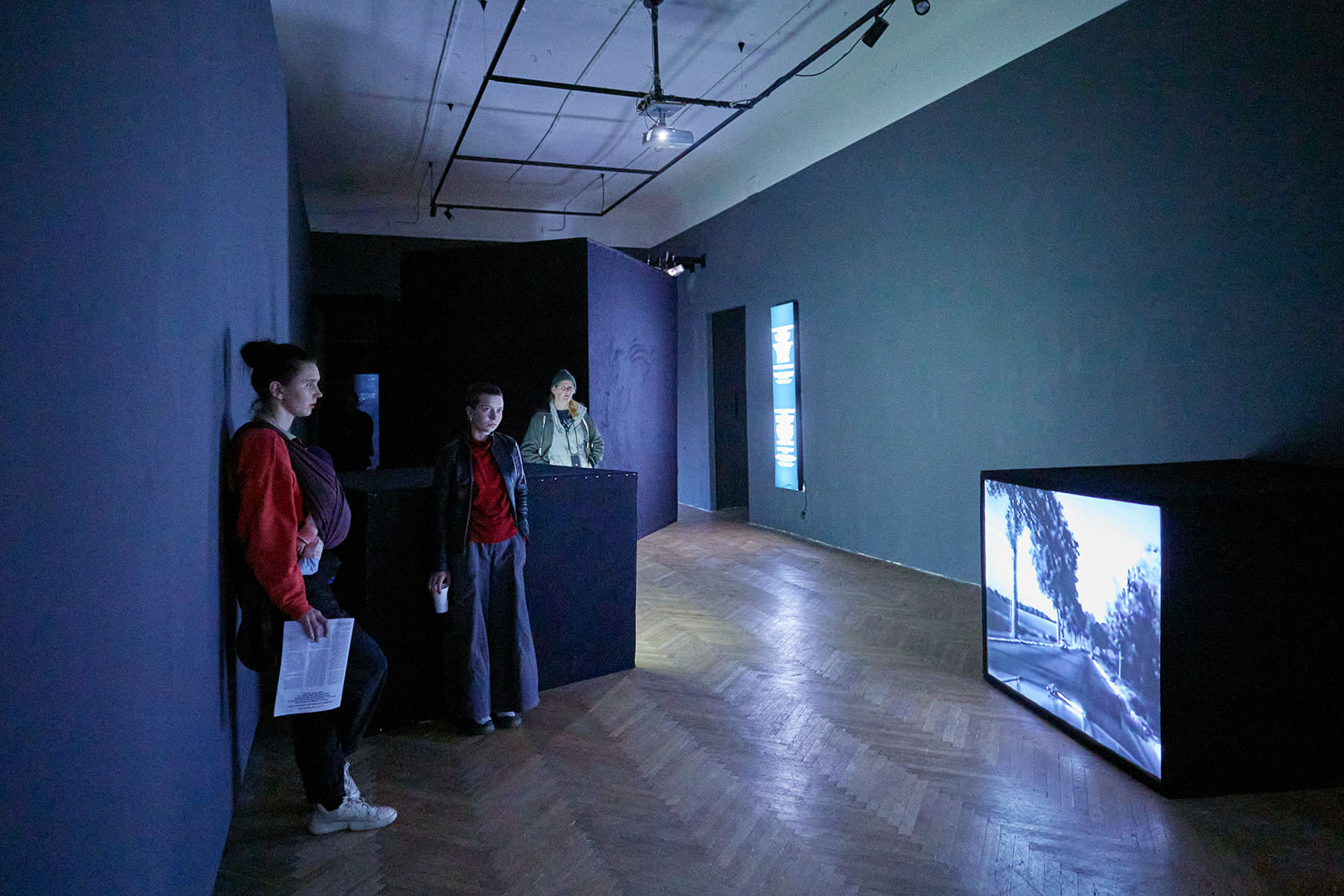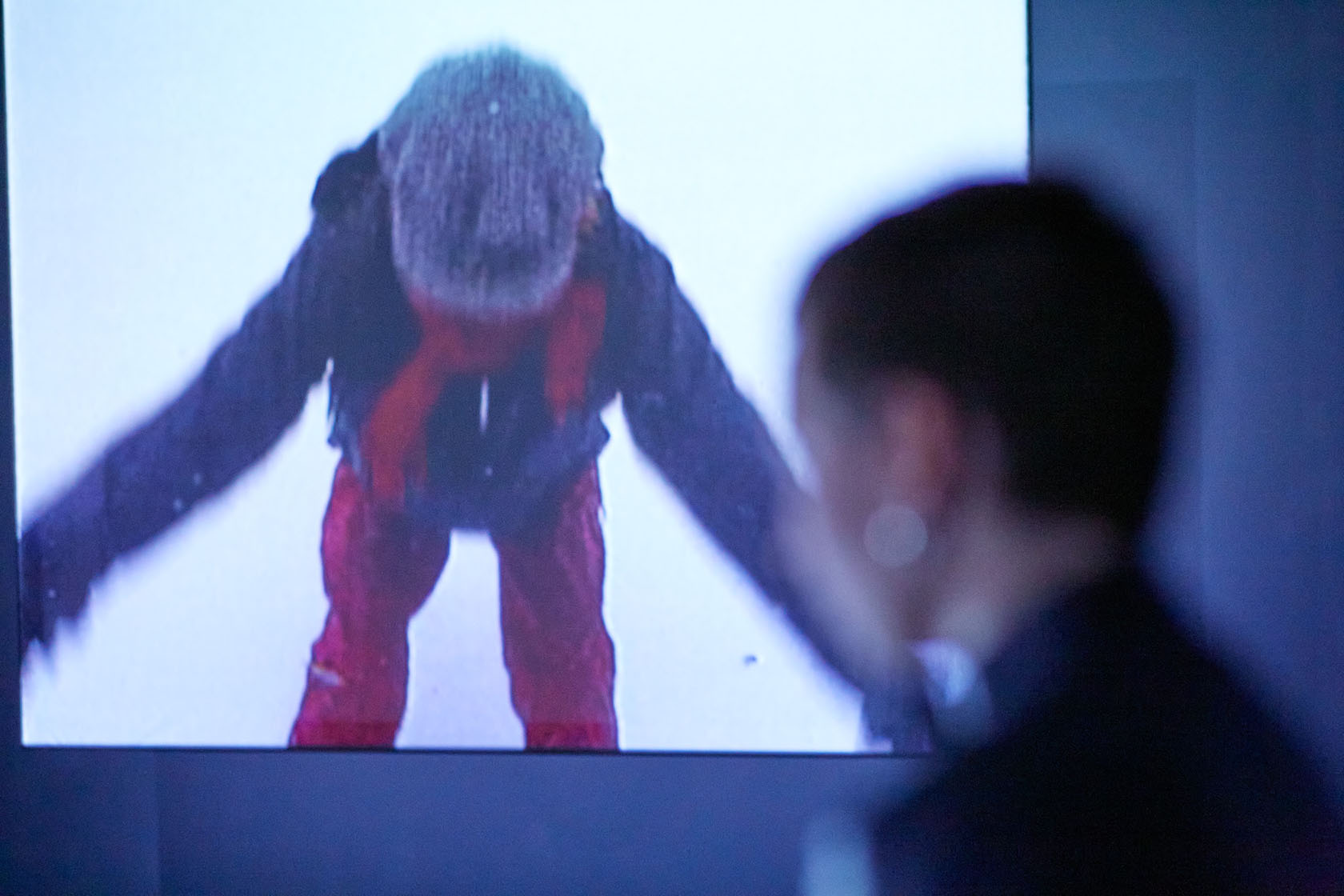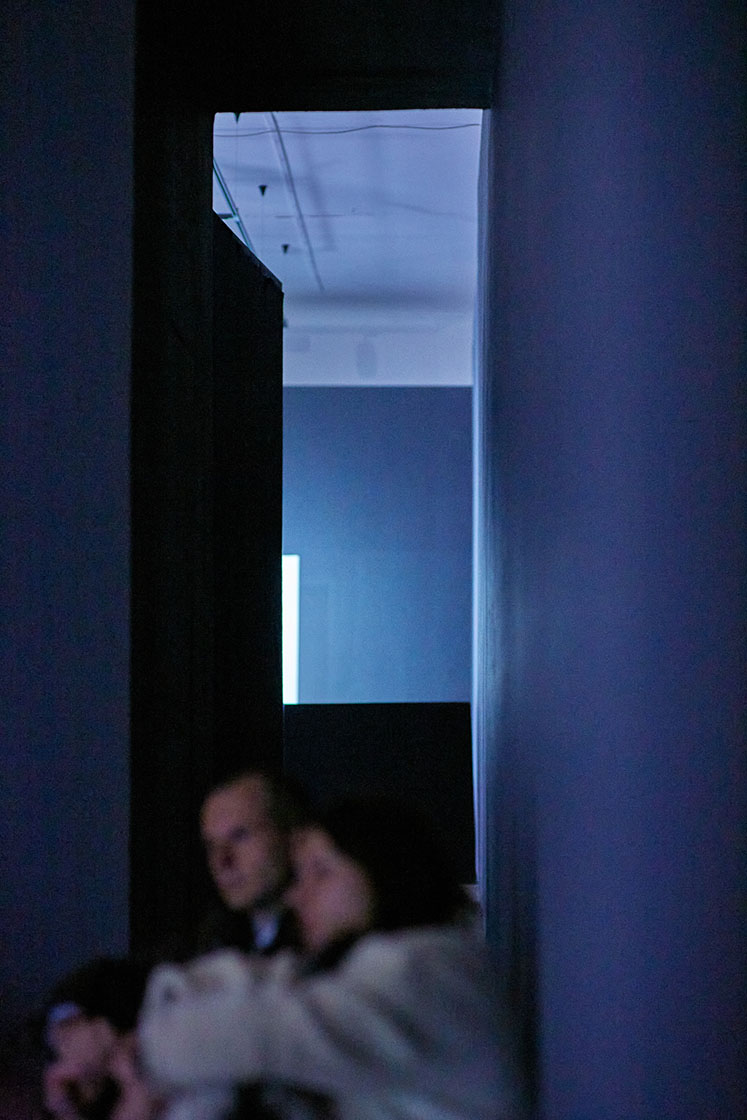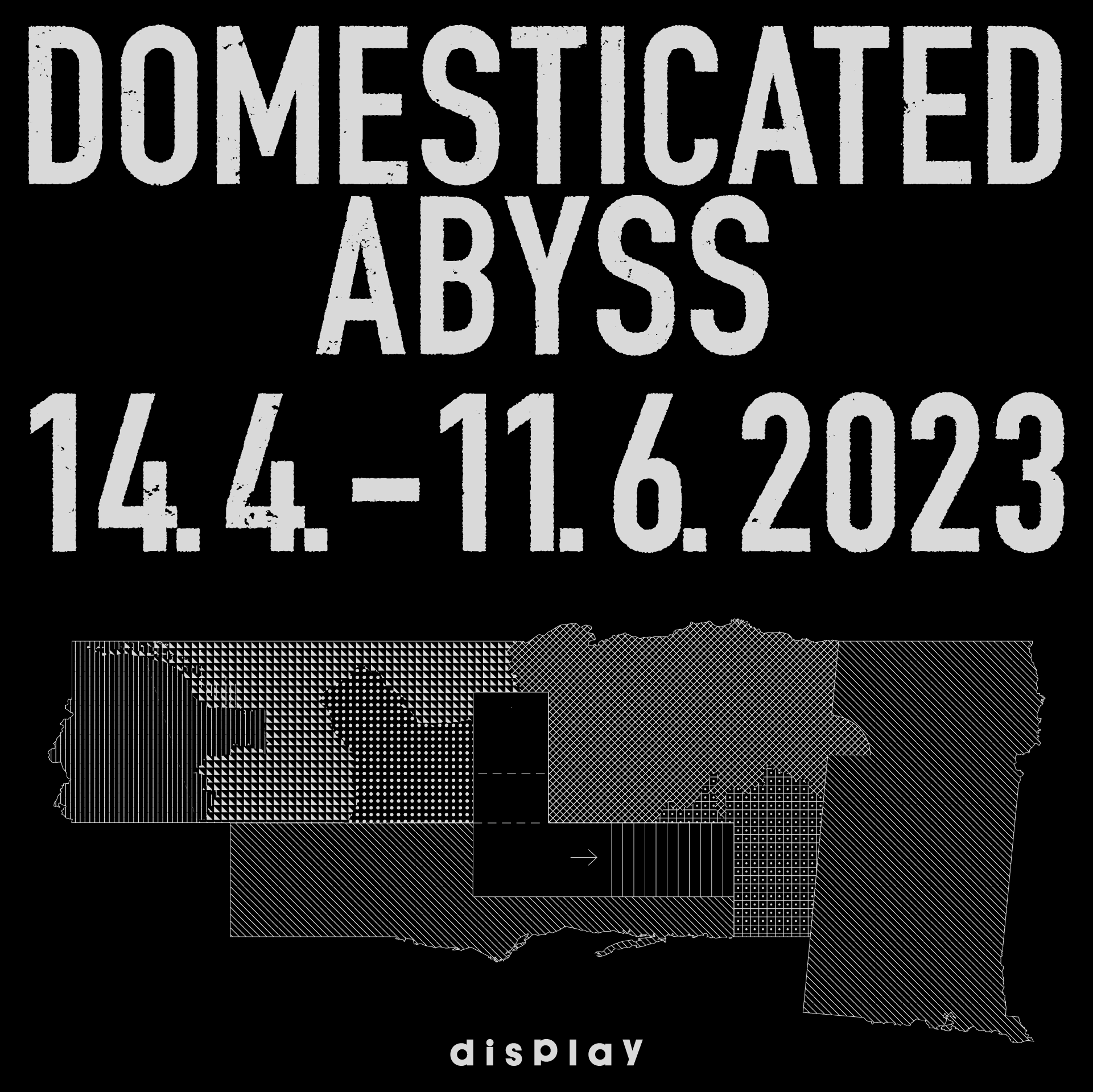DOMESTICATED ABYSS
The exhibition presences and connects four artistic works, each reflective of particular events of the war in former Yugoslavia. Their authors were born in the second half of the 20 th century, in this state which no longer exists.
The resulting constellation of moving images contextualizes and opens a space for questioning the (im)possibility of mediating violent and extremely traumatic political events, such as war. It also tries to show their transformations in time. This is why the program features two works made in the second half of the 1990s and two works from more recent times. The works make use of diverse artistic approaches and strategies (the ready-made / appropriation, reconstruction / performance and forensic sciences), challenging their own assumptions, significations and affective power.
We are currently again witnessing a military conflict in the immediate vicinity of our state borders, and this exhibition brings more to the table than a mere comparative study or a retrospective view on one war which, even thirty years later, continues to cast a long shadow.
The work of Sanja Iveković has been presented at international biennials of contemporary art for decades, both as part of solo exhibitions and as part of the collections of some of the world’s most eminent galleries. A retrospective exhibition of her work has, for instance, been recently exhibited in Vienna’s Kunsthalle. Sanja was born and studied art in Zagreb, where she currently lives and works. She entered the art scene of the Socialist Federal Republic of Yugoslavia in the 1960s as part of the so-called New Art Practice movement (Nove umjetničke prakse). Her artwork has focused on the relationship between ideology and media, history and the present, gender and politics, as well as violence against women. Sanja’s work has been characterized by strong feminist positions and themes, as well as strategies of emancipation. After 1989, her art became even more preoccupied with politics, and she became an activist as well as an artist. Sanja Iveković is founder and member of numerous Croatian NGOs addressing the position of women.
Milica Tomić was born and studied in Belgrade, entering the world of international art in the latter half of the 1990s. She largely thematizes the issues of political violence, trauma and social amnesia. Milica Tomić is a founding member of the art-theory Grupa Spomenik (Monument Group) and initiator of the group and project Četiri lica Omarske (The Four Faces of Omarske, 2010), focusing on the problematics surrounding the mining complex and concentration camp of the same name (https://cetirilicaomarske.wordpress.com/). In her artistic practice, she employs a wide spectrum of media (photography, video, installation, performance, discursive educational formats…) and strategies which force her to constantly transcend the limits of such media. Her activities are often characterized by social and political engagement and are based in interdisciplinary collaboration and public discussion. She also teaches – since 2014 at the Faculty of Architecture in Graz, and before that at the Academy in Trondheim.
Šelja Kamerić is a contemporary artist who was born, studied and currently works in Sarajevo. Her work deals with political memory and its gender specifics, as well as strategies and methods of resistance. She focuses on exploring possibilities of non-linear (personal and collective) narration, and her works connect intimate experiences, pithy social commentary and political testimony. She works through photography, objects, illustration and installation, presenting empathy as a basic communicational mechanism. She entered the international art scene at the beginning of the 2000s, and her works are part of the collection of some of the world’s foremost galleries, regularly appearing at international showcases of contemporary art. Immediately after the war, Šelja Kamerić reflected mostly her own experiences, attempting to understand the recent events she had gone through. She developed this approach in works such as Bosnian Girl (2003), Glück (2010) or her film 1395 Days Without Red (2011). At the exhibition, we present her project Ab uno disce omnes (2015) which works through a wholly different strategy, using research and forensic data collection which it transforms into a database of specifically evidenced war crimes committed on the territory of Bosnia and Hercegovina.
Jelena Jureša is an artist and filmmaker born in Novi Sad, where she also graduated from the Academy of Fine Arts. In 2014, she moved to Belgium and continued her studies at the University of Ghent, from which she received a PhD. In her films, photographs, video installations and texts, she explores questions of cultural identity, gender, politics of memory and collective violence. Her work often builds on the principle of connecting particular individual stories with the collective processes of forgetting and remembering. The artist thus consistently questions the nature of official historic and political narratives. Her long-term research, focusing on mechanisms of oppression and the perpetuation of colonial violence, resulted in a number of multidisciplinary projects of recent years. They remain very personal while at the same time being political. As part of her exhibition in Display, we present a video installation which is part of her project APHASIA (2019–2022). Its individual outcomes were gradually presented in many galleries, at international showcases of contemporary art (such as the Contour Biennale or the Manifesta Biennale) and were also screened at a number of festivals of documentary film, including the MFDF Ji.hlava.
This exhibition is realized with the support of HMP and MKČR
